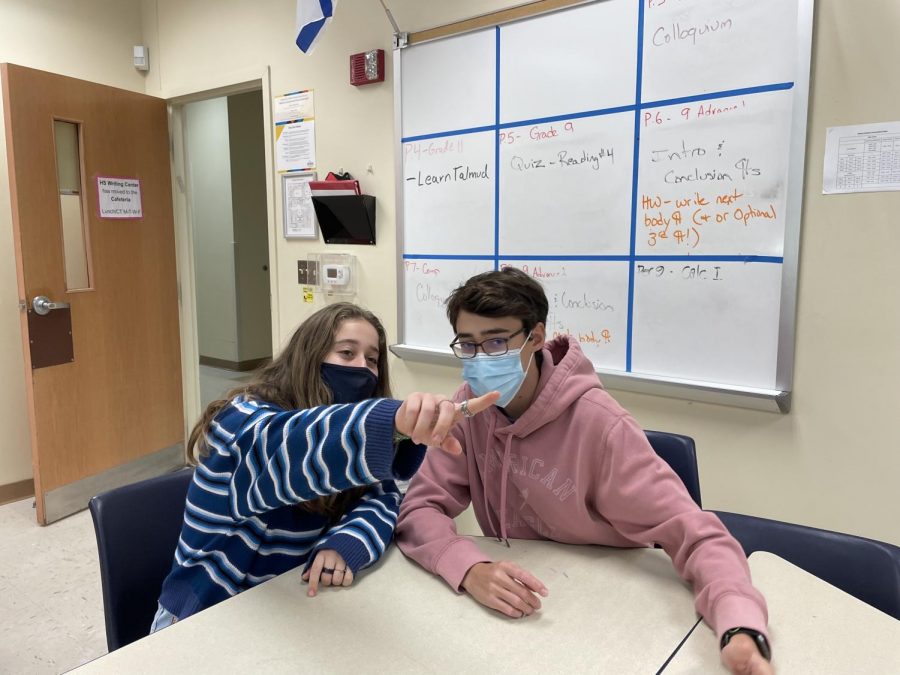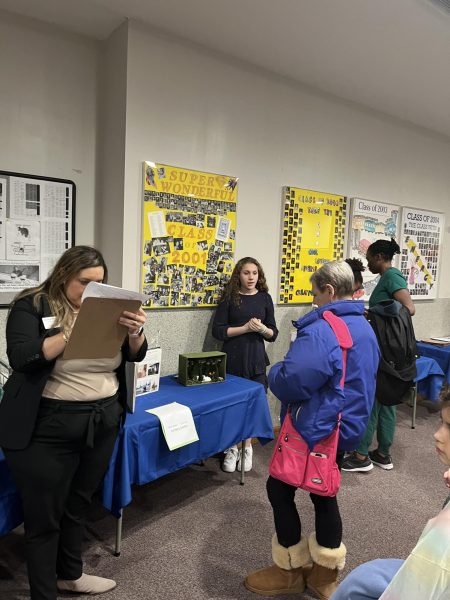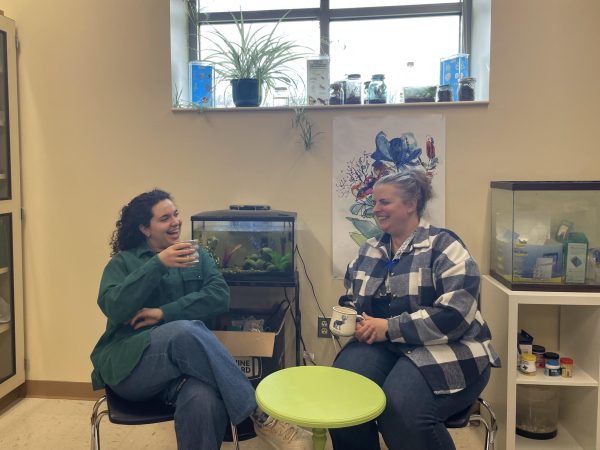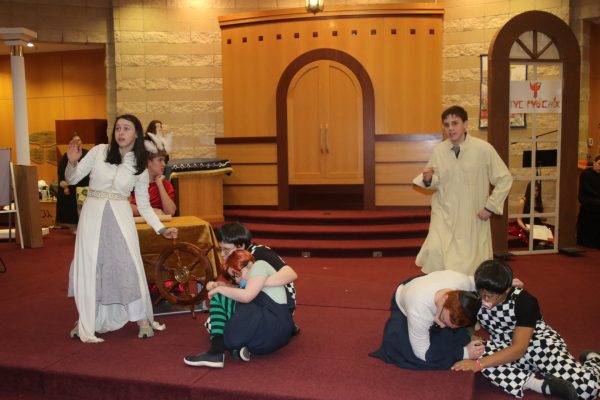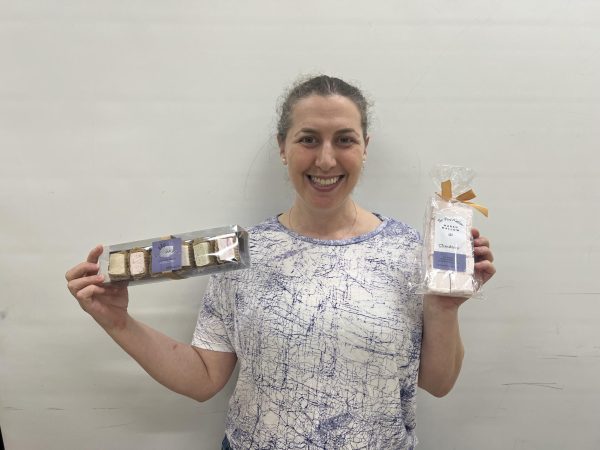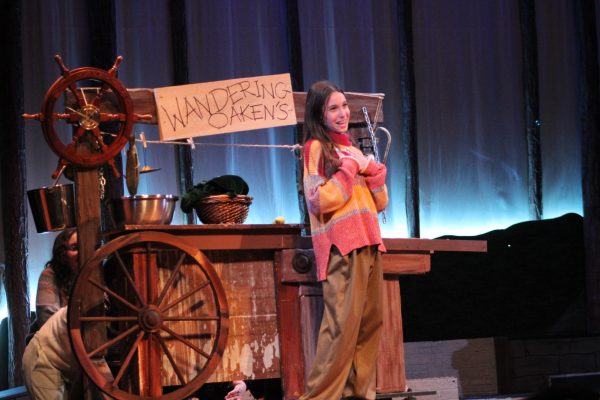Double trouble
Samantha and Remy Eidelman discuss a lesson in class.
November 17, 2021
The chances of having a twin are about one in 250. But at CESJDS, there are multiple pairs in the high school alone, and several of these twins share academic and elective classes together.
Sophomore Gabi Simon has English, history and study hall with her twin brother Daniel. She feels that having the same teachers as her brother is very convenient because she can talk to him to make sure that they both understand the lessons that day.
“It’s nice to have someone that I know I can just immediately turn to,” Gabi said.
Junior Samantha Eidelman agrees with Gabi’s sentiment about sharing classes with their twin. Samantha and their brother Remy have been in the same classes before, and over time, they became closer to each other.
“There was a little, competitive dynamic between us, always, you know, wanting to do better than the other person,” Samantha said. “We also made jokes and made each other laugh. It was a really fun experience to be able to have it in my class, because I have been getting closer with him.”
While students may enjoy taking classes together, it is not so simple from an educator’s point of view. High school math teacher John Watkins-Chow says he is concerned about favoritism.
“I especially want to be careful of appearing to praise one more than the other,” Watkins-Chow said.
Watkins-Chow said that what helps him be a better teacher for twins, or any student in general, is to “know as little as possible about the students” in advance, so he can learn about them once they come into his classroom.
Both Gabi and Samantha agree that there is not a lot of natural favoritism with them and their brothers. Because Gabi and Daniel have different skill sets, she thinks that the only biases from the teachers would be for who participates more in class.
“I tend to participate more in class, vocally at least. So maybe I get a bit more attention from the teacher, just because of how I learn,” Gabi said. “But it’s intentional attention. But, other than that, it’s pretty equal.”
Competition is something every student feels when comparing themselves to others. Having a sibling in the same class raises the concern that the twins have to deal with living with their academic rival.
“Our parents don’t tend to discuss our grades with the other one, which I think is helpful,” Gabi said. “I feel a bit competitive with my brother, just because he’s able to take more science-related electives than I am because I’m taking Spanish. But I also like science and STEM stuff, but because my brother has more opportunities, I sometimes feel that my parents don’t see my interest in STEM as much. But other than that, we don’t really feel competitive with each other.”
Samantha also feels a bit of competition with their brother. Samantha and Gabi both believe that the school avoided putting them with their twin in the same class for a long time.
“We haven’t really had classes together in a while. Actually, my first class that I had with him was in fifth grade and then not again until ninth grade,” Samantha said.
But there has to be a balance between never being in a class with your twin, and always having to be paired up with one. Gabi said that she and her brother had a plan for the new school year to tell the teachers what they wanted.
“At the beginning of the school year, we went up to the teachers for English and history to say, ‘Hey, we’re fine working together. But we just prefer not to, if possible.’ The teachers have made that work so far,” Gabi said.
Weighing their overall experiences, both Gabi and Samantha agree that they enjoy having their brothers in their classes.
“It’s kinda like, you know, built-in friend situations,” Samantha said.


